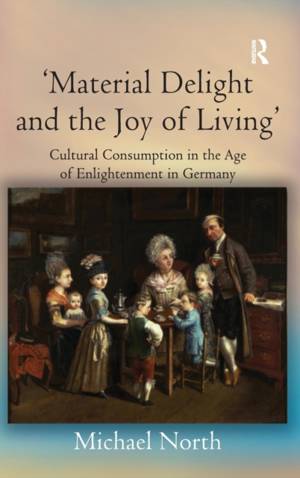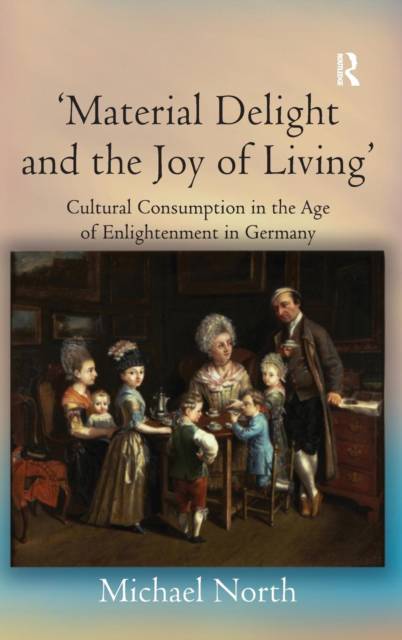
- Afhalen na 1 uur in een winkel met voorraad
- Gratis thuislevering in België vanaf € 30
- Ruim aanbod met 7 miljoen producten
- Afhalen na 1 uur in een winkel met voorraad
- Gratis thuislevering in België vanaf € 30
- Ruim aanbod met 7 miljoen producten
Zoeken
'Material Delight and the Joy of Living'
Cultural Consumption in the Age of Enlightenment in Germany
Michael North
Hardcover | Engels
€ 343,45
+ 686 punten
Omschrijving
Eighteenth-century Europe witnessed a commercialisation of culture as the marketing of culture became separated from its production and new cultural entrepreneurs entered the stage. Cultural consumption also played a substantial role in creating social identity. In this book, Michael North systematically explores this field for the first time in regard to the European Continent, and especially to eighteenth-century Germany. Chapters focus on the new forms of entertainment - concerts, theatre, opera, reading societies and traveling - on the one hand and on the new material culture - fashion, gardens, country houses and furniture - on the other.
Specificaties
Betrokkenen
- Auteur(s):
- Uitgeverij:
Inhoud
- Aantal bladzijden:
- 288
- Taal:
- Engels
Eigenschappen
- Productcode (EAN):
- 9780754658429
- Verschijningsdatum:
- 17/10/2008
- Uitvoering:
- Hardcover
- Formaat:
- Genaaid
- Afmetingen:
- 156 mm x 234 mm
- Gewicht:
- 580 g

Alleen bij Standaard Boekhandel
+ 686 punten op je klantenkaart van Standaard Boekhandel
Beoordelingen
We publiceren alleen reviews die voldoen aan de voorwaarden voor reviews. Bekijk onze voorwaarden voor reviews.







